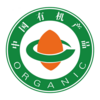
Organic agriculture China - Regulation GB/T19630-2011
Standard Owners (0)
| Name | Country | |
|---|---|---|
No results found | ||
About (Organic agriculture China - Regulation GB/T19630-2011)
Regulation GB/T19630-2011 is a specific standard in China that pertains to organic agriculture. It provides guidelines and requirements for the production, processing, certification, and labeling of organic agricultural products within the country. The regulation aims to promote the development of organic agriculture, ensure the integrity of organic products, and protect the interests of consumers.
Key features and provisions of Regulation GB/T19630-2011 include:
Organic Production Standards: The regulation establishes standards for organic production methods, which prohibit the use of synthetic pesticides, chemical fertilizers, genetically modified organisms (GMOs), and other prohibited substances. It promotes the use of organic inputs, crop rotation, composting, and other sustainable practices to maintain soil fertility and ecosystem health.
Certification and Inspection: The regulation outlines the certification process for organic agricultural products. It requires producers to undergo regular inspections and evaluations by authorized certification bodies to ensure compliance with organic standards. Certification is granted to those who meet the criteria and adhere to the regulations.
Labeling and Traceability: The regulation mandates clear labeling of organic products to distinguish them from conventionally produced items. It establishes requirements for labeling content, such as the organic certification mark, certification body information, and product composition. This helps consumers make informed choices and ensures transparency in the organic supply chain.
Quality Control and Testing: The regulation emphasizes quality control measures to prevent contamination and ensure the authenticity of organic products. It may involve periodic testing of products to detect the presence of prohibited substances or verify organic claims.
Documentation and Record-Keeping: The regulation requires producers to maintain comprehensive records and documentation related to their organic production practices, inputs, and transactions. This facilitates traceability and enables authorities to verify compliance during inspections.
By implementing Regulation GB/T19630-2011, China aims to foster the growth of organic agriculture, enhance consumer confidence in organic products, and create a standardized framework for the organic sector. It aligns with international organic standards and practices while addressing specific considerations and requirements within China's agricultural context.
Organic agriculture certification under this regulation assures consumers that products have been produced and processed in accordance with established organic standards, providing them with a reliable choice for organic and sustainable consumption.
In summary, Regulation GB/T19630-2011 sets out the guidelines and requirements for organic agriculture in China. It covers various aspects of organic production, certification, labeling, and traceability. The regulation aims to promote organic farming practices, ensure product integrity, and provide consumers with reliable organic choices. Compliance with this regulation allows for the certification of organic agricultural products and demonstrates adherence to organic standards within China's agricultural industry.